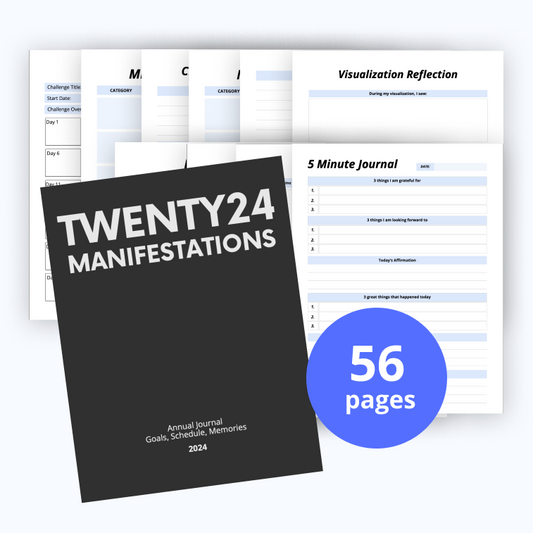Tossing and turning through the night can leave you exhausted and frustrated.
If you’re struggling with insomnia or sleep problems, you’re not alone.
Millions face these challenges, seeking solutions that bring restful nights and energetic mornings.
But don’t worry, you’re about to discover effective coping strategies that can transform your sleep patterns and improve your quality of life.
Understanding the root causes of your sleep disturbances is the first step toward finding relief.
Whether it’s stress, lifestyle habits, or medical conditions, identifying these factors is crucial.
Armed with this knowledge, you’ll be equipped to explore various techniques and lifestyle adjustments that can usher in the peaceful slumber you’ve been dreaming of.
Let’s begin on this journey together, towards nights filled with rest and days filled with vitality.
Understanding Insomnia and Sleep Problems
Hey, you’re not alone if you’re tossing and turning at night, trying to catch some Zs.
Tons of people are in the same boat, struggling to nod off or stay asleep long enough to feel like actual humans in the morning.
Let’s get to the bottom of this pesky sleep-stealing bandit known as insomnia and other sleep disturbances.
First thing’s first, what’s the deal with insomnia? It’s basically when you can’t fall asleep, stay asleep, or even both.
And it’s not just about feeling a bit groggy in the a.m. Lack of good sleep can mess with your mood, energy, health, and your ability to slay your daily tasks.
But what causes this frustrating sleep interruption?
Hang tight, because it’s not a one-size-fits-all answer.
A mix of factors can invite insomnia over to your sleep party.
We’re talking stress, your lifestyle choices (hello, midnight snack or scrolling spree), and even some medical conditions.
Yep, your body and brain can be like, "Nope, no sleep for you!"
For the big question: How common is insomnia?
Take a look at these numbers:
| Age Group | Percentage (%) of People Reporting Insomnia |
|---|---|
| Adults | 30-40% |
| Elderly | 40-60% |
Yikes, right?
But hold up, it’s not all doom and gloom.
Recognizing what’s throwing off your sleep game is step one. Knowing is half the battle, as they say.
You might be wondering, "Is my love for late-night binge-watching or my afternoon coffee break to blame?"
Answer: Maybe.
Habits like these can be culprits, too. Your body’s internal clock gets all confused, thinking it’s party time instead of sleepy time.
But don’t worry, we’re going to tackle how to cope with these sleep snatchers in the upcoming sections.
Stick around for the insider scoop on turning your nights from restless to restful.
And don’t forget, Wholesome’s got your back with tools to make drifting off a breeze.
Stay tuned for more sleep-friendly tips and tricks up ahead.
Identifying Root Causes
So, you’re tossing and turning, counting sheep, or maybe even Googling "why can’t I sleep?" at 3 AM.
Sound familiar? You’re not alone.
Millions are in the same bleary-eyed boat, struggling to catch those elusive Z’s.
First step to beating this nighttime nemesis? Understanding what’s behind it.
Stress: The Sleep Stealer
Stress is like that annoying friend who just doesn’t get the hint to leave.
It’s a top reason many of you find yourselves staring at the ceiling instead of snoozing.
Whether it’s job jitters, exam anxiety, or personal pressures, stress sends your brain into overdrive, making it tough to wind down.
Lifestyle Choices: What You Do Matters
What you’re sipping or snacking on could be stealthily sabotaging your slumber.
Caffeine and heavy meals before bed? Big no-nos.
And let’s not forget about screen time. Binge-watching your favorite series might seem like the perfect wind-down, but it’s actually getting your brain wired, not tired.
Medical Conditions: More Than Just Snoring
Sometimes, it’s not just about bad habits or stress. Conditions like sleep apnea, restless leg syndrome, or even allergies can turn what should be a restful night into a bit of a nightmare.
Recognizing these issues is crucial because, let’s face it, Googling symptoms at 2 AM might make you think you’ve got everything from a rare tropical disease to an alien abduction.
The Environment: Setting the Stage for Sleep
Your bedroom should be your sleep sanctuary, not a multi-purpose room.
Is it too hot, too cold, too loud, or too bright?
Any of these can mess with your sleep.
Creating a comfy, quiet, and dark environment can make a huge difference.
Identifying what’s keeping you awake is the first step towards enjoying more of those sweet dreams. And while there’s no magic bullet, getting to the root of the problem is key.
Next up, we’ll look at proven strategies to tackle these issues head-on.
Because a good night’s sleep isn’t just a dream—it’s absolutely within your reach.
Lifestyle Adjustments for Better Sleep
You know the drill: You’re tossing and turning at 3 a.m., counting more sheep than there are in New Zealand, and wondering why sleep seems like a distant dream.
Well, it’s time to kick insomnia to the curb with some lifestyle adjustments that’ll have you snoozing like a baby.
Limit Caffeine and Heavy Meals
Let’s start with the basics: what you eat and drink.
Downing coffee like it’s water or indulging in a big meal right before bed is a recipe for a sleepless night.
Try to keep your caffeine intake to the morning hours and opt for lighter meals in the evening.
Your body and your sleep schedule will thank you.
Create a Sleep-Friendly Environment
Your bedroom should be a sleep sanctuary, not a multi-purpose room where you work, eat, and occasionally sleep. Keep it cool, dark, and quiet.
Consider investing in blackout curtains and maybe a white noise machine if your neighbor’s dog won’t stop serenading the moon.
Make your bedroom a tech-free zone. Yes, that means no scrolling through social media in bed.
The blue light from your devices can mess with your sleep hormones, keeping you awake longer.
Stick to a Sleep Schedule
Consistency is key. Try to hit the hay and wake up at the same times every day, even on weekends. This helps regulate your body’s internal clock and improves your overall sleep quality.
No more weekend sleep marathons that leave you feeling groggy come Monday.
Exercise Regularly
You’ve heard it a million times, but here it is again: Regular exercise can vastly improve your sleep.
Just make sure you’re not doing high-intensity workouts right before bed, or you’ll be too pumped up to sleep.
Aim for activities that tire your body in a good way, like yoga or a leisurely walk in the evening.
Don’t forget, finding the right combo of lifestyle tweaks for better sleep might take some trial and error.
But once you find what works for you, it’s like revealing the secret level in a video game – suddenly, everything clicks, and you’re winning at the sleep game.
And hey, if you’re looking for a way to wind down before bed, why not give one of Wholesome’s guided journals a try?
It’s a relaxed way to reflect on your day and ease into a peaceful night’s sleep.
Techniques to Improve Sleep Quality
Trouble hitting the snooze land? You’re not alone.
So many of us find ourselves staring at the ceiling at 3 AM, wondering if counting sheep is just a myth.
If you’re tired of being tired, let’s talk about some game-changing strategies that can help you catch those elusive Z’s.
Cut Back on Caffeine and Late Snacks
First, here’s a no-brainer: cut down on caffeine.
Love your coffee or energy drinks? They could be the party crashers in your sleep parade.
Consuming caffeine late in the day stimulates your nervous system and may stop your body from naturally relaxing at night.
And, let’s not forget about those midnight snack raids. Heavy meals or spicy foods before bed can lead to discomfort and heartburn.
Your body’s too busy trying to digest; it forgets about sleeping!
Stick to lighter meals and see how your sleep improves.
Craft Your Sleep Sanctuary
Your bedroom should be your sleep sanctuary.
Is it cluttered? Too bright?
Adjusting your environment can work wonders. Consider blackout curtains, earplugs, or even a white noise machine to block out those annoying disturbances.
And yes, temperature matters too. Cooler rooms typically encourage better sleep.
So, dial down the thermostat and cozy up under your blankets.
Set a Solid Sleep Schedule
Consistency is key. Going to bed and waking up at the same time every day sets your body’s internal clock.
This regularity can significantly improve your sleep quality.
Yes, that means weekends too. Sorry!
Exercise Regularly, but Not Before Bed
Regular exercise can boost your sleep quality like you wouldn’t believe. Just don’t do it right before bed.
Evening workouts can leave you too energized to sleep.
Aim to finish any vigorous exercise at least a few hours before your bedtime.
Journal Your Way to Better Sleep
For a Wholesome tip: try jotting down your thoughts in one of Wholesome’s guided journals before bed.
It’s like a mental download, clearing your brain of any worries or stressors that could keep you up.
You’ll be surprised how jotting down a few thoughts can prepare you for a peaceful night’s sleep.
Building Healthy Sleep Habits
Struggling with insomnia or just can’t seem to catch those Zzzs? You’re not alone. Luckily, building healthy sleep habits can be your ticket to dreamland.
Let’s break it down into simple, actionable steps that’ll have you snoring (quietly, we hope) in no time.
First things first: check what you’re sipping on. That afternoon coffee might just be the culprit keeping you up. Switch to decaf or herbal teas post-lunch, and you’ll be doing your sleep a huge favor.
Hit the hay at the same time every night. Yup, even on weekends. Consistency is key here. Your body loves routines, and sticking to a regular bedtime will help regulate your internal clock, making it easier to fall and stay asleep.
Exercise is your friend—but timing is everything. Morning jogs or afternoon workouts can help tire you out, just the right amount. But, try not to work out too close to bedtime, or you’ll be too energized to nod off.
Create a sleep sanctuary. Your bedroom should be a calm, inviting space. Keep it cool, dark, and quiet. Consider investing in blackout curtains or a white noise machine if you’re in a noisy area. And yes, that means bidding adieu to screens before bedtime. The blue light from your phone or laptop can mess with your sleep hormones.
Journaling can be a game-changer. Don’t forget us? Wholesome’s guided journals are perfect for winding down before bed. Scribbling down your thoughts can clear your mind and ease anxieties, setting you up for a peaceful night’s sleep.
Incorporating these habits into your nighttime routine can significantly improve your sleep quality.
Don’t forget, it’s about making small changes that add up to big results.
Start tonight, and you’ll be well on your way to catching those elusive Zzzs.
Next Steps
Embracing these strategies offers a promising path toward overcoming insomnia and enhancing your sleep quality.
Don’t forget, it’s the small adjustments to your daily and nightly routines that can yield the most significant benefits.
By prioritizing habits like limiting caffeine intake, sticking to a regular sleep schedule, engaging in timely exercise, and fostering a serene bedtime environment, you’re setting the stage for restorative sleep.
Adding journaling to your pre-sleep ritual further aids in calming your mind and easing anxiety, making it easier to drift off.
Start tonight, and you might just find yourself waking up to brighter mornings and more energetic days ahead.




